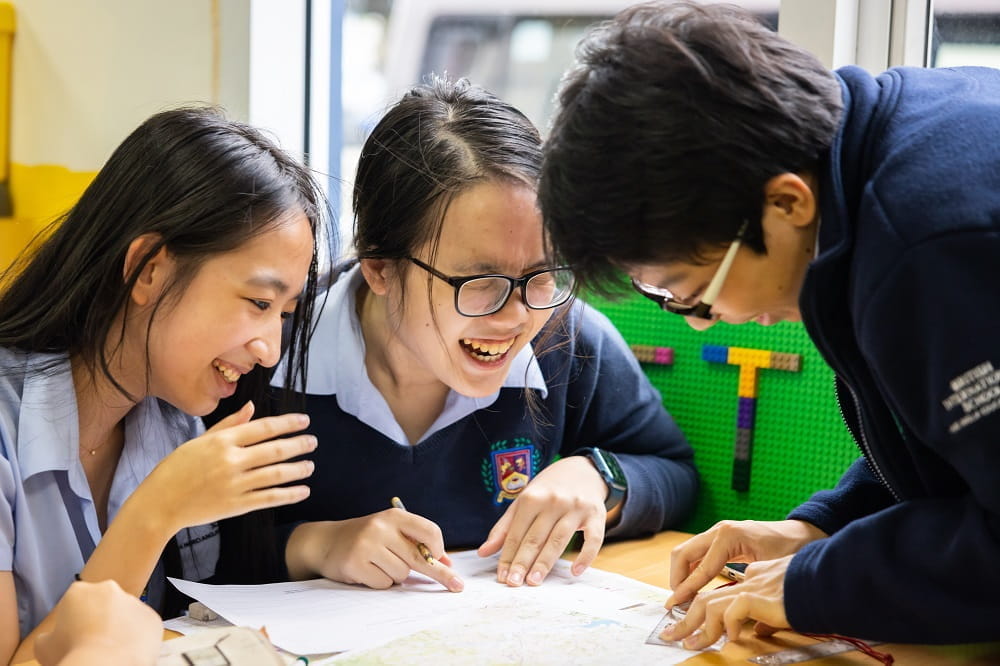CAS is not formally assessed; however, reflection plays a key role in supporting students in developing their sense of identity and international mindedness. The process of reflection builds a student’s CAS portfolio and provides evidence of achieving the seven learning outcomes for CAS. To support with this, students can use the ‘Quality CAS Reflections" poster, which supports students with guided questions that they can use to tailor their reflections to these learning outcomes. Working towards these learning outcomes during their 18 months of CAS will also support students in gaining skills for the future, whether that is at university or in the workplace, as they develop collaborative skills and consider the ethics of their choices and actions.

As an integral part of the CAS programme, the CAS advising team and I have been focusing on how we can ensure student reflections are both deep and meaningful. CAS students are encouraged to choose forms of reflection that are personal and enjoyable, so that reflection becomes a means of self-discovery. We’ve seen reflection take the form of creative expression, such as dance, or a more traditional route, such as writing.
This year in CAS, students have been introduced to a variety of different types of reflection to experiment with how they prefer to build skills for self-regulation – something that can be a challenge for a developing teenage brain! We’ve used reflective templates as a tool to support deeper thinking. For example, the ‘emotions graph’ template pinpoints how their emotions changed during their experiences.

Year 12 recently received their deadline Calendar for their IB studies. In IB Core lessons, they have started to use the emotion graph approach for long-term planning. This helped them see where, in the future, they might have crunch points in their workloads in and out of school. We will be using these graphs to think about what strategies and support networks our students can utilise to help them manage their time, organisation, and anxiety through these periods.

Many students have found the ‘CAS Mind Map’ template helpful in reflecting differently on their experiences. This reflection tool is designed with branches to scaffold thinking around what the student has learned during that experience, how they felt during it, and any challenges that they faced. This can be a helpful tool for students' self-discovery and to support them in engaging in critical and reflective thinking. As a foundation for lifelong learning, using these reflective tools can help build confidence and foster pride in new skills.

BIS Hanoi believes that effective effort and learning habits are an important part of our work in supporting students for success. You can read more about why in this blog post. To support our students in applying effective effort to areas of their lives outside of academics, because learning doesn’t only happen in a classroom setting, the CAS team have been applying the four areas of our ‘Effective Effort’ matrix: ‘stretch zone’, ‘reflection and self-assessment’, ‘responding to feedback’ and ‘mistake making’ to develop powerful learning habits that can support our students in becoming 21st century thinkers and powerful global citizens.
We’ve empowered students to take agency in their CAS ‘Effective Effort’ assessment by reflecting on their CAS experiences based on the four areas and explaining their reflections and ratings. This happens regularly during informal conversations with their CAS Adviser and is consolidated in their formal CAS interviews. By doing this, students can identify strengths and areas for development, as well as exploring personal values. The key idea behind CAS and its connection with BIS ‘Effective effort’ strategy is that students can take risks with their learning, they can try new experiences without the concern that this will impact their academic results, therefore building more resilience into our students. They can then bring this resilience forward into their academic learning.
Reflection is a dynamic means of self-knowing, learning and decision. We are so proud of how our students are challenging themselves to foster a growth mindset through their reflections.
Ms. Victoria Embling
History Teacher/CAS Coordinator









